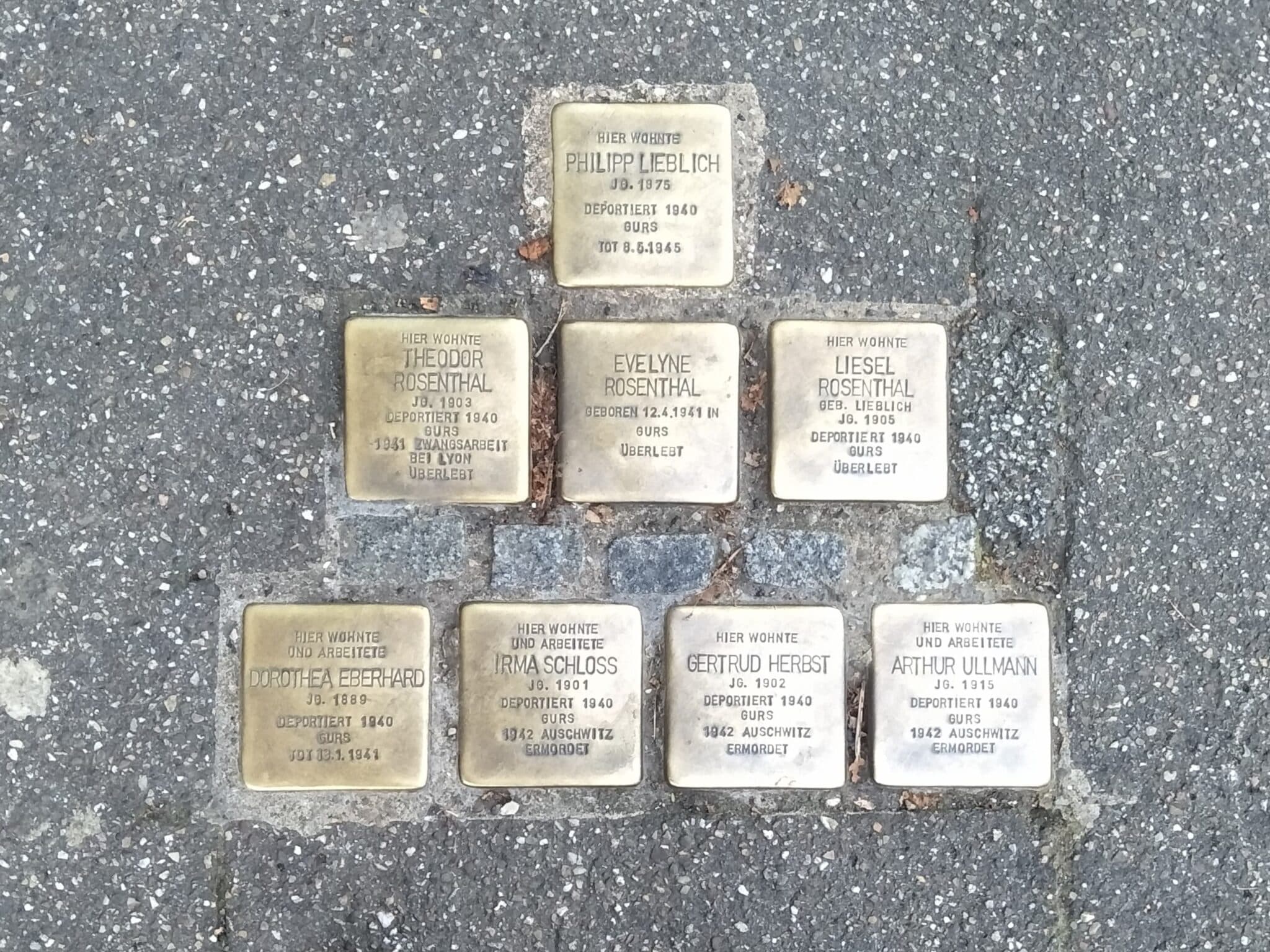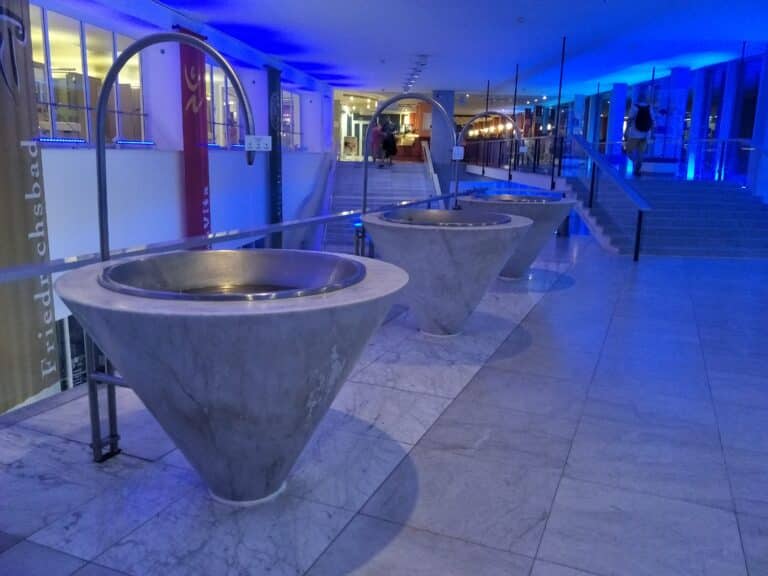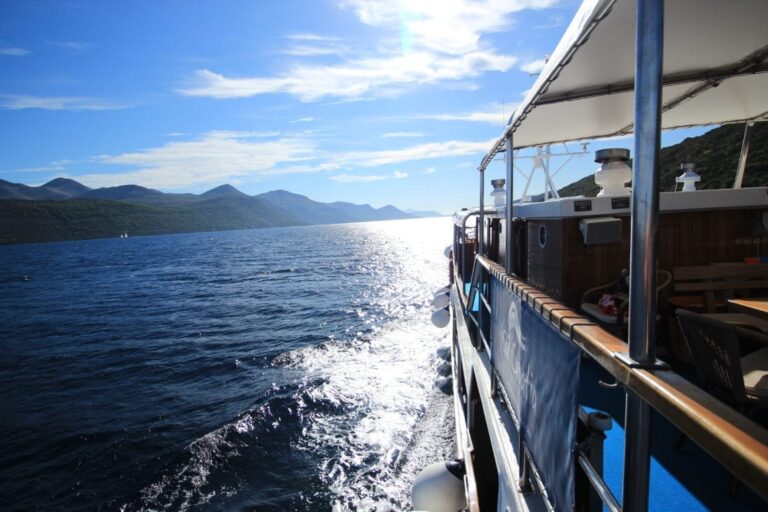6 Things to Know Before Traveling Europe
It’s important to get yourself clued up on local customs, cultures and social norms before visiting anywhere foreign, so I’ve put together a handy list of 6 things to know before traveling Europe.
Schengen Zone
The Schengen Zone is a group of 26 European countries whose mutual borders are open to allow for non-complicated travel through a single visa policy. This zone includes: Austria, Belgium, Czech Republic, Denmark, Estonia, Finland, France, Germany, Greece, Hungary, Iceland, Italy, Latvia, Lichtenstein, Lithuania, Luxembourg, Malta, Netherlands, Norway, Poland, Portugal, Slovakia, Slovenia, Spain, Sweden, and Switzerland.
To put it simply; either a Schengen Visa or your passport will allow you to travel through and between any of these countries freely for 90-days within a 180-day period. So treat all the above countries as ‘one’ country, where you are only allowed to travel for up to 90 days out of a 180 day period. If you plan on exceeding this 90 day limit you will need to do your research on other visas, otherwise you can be classed as an overstayer and deported.
To check what category your country fits in visit the following website:
https://ec.europa.eu/home-affairs/sites/homeaffairs/files/what-we-do/policies/borders-and-visas/visa-policy/apply_for_a_visa/docs/visa_lists_en.pdf
The Schengen Zone can become a slight pain in the arse; as having only 90 days to visit any of the 26 countries isn’t a very long time when you actually try exploring Europe. And the days start adding up quite quickly, next thing you know you’re on a bus to Albania because you don’t want to risk getting deported. (However I did love Albania, favourite country out of all I have visited.)
For more information visit: https://www.schengenvisainfo.com/schengen-visa-countries-list/
Bus and Boat Tours
One of my favourite parts of travel was planning my OE only 2 – 3 days ahead. There were the odd days where I would wake up and decide to head to another country with someone I had met at my hostel and only known for 24 hours. And there were other days I would arrive in a country without a bed to sleep in. Obviously travelling this way is easier when you’re alone, because you don’t have anyone else to accommodate for and you can go or stay on your own terms. But I understand that this isn’t the way some, or a lot of people like to travel. All inclusive tours are the perfect answer for those people who are travelling in a group or want a stress free travel experience where everything is organised ahead of time.
Bus Tours
Bus tours are fantastic and cater to a wide range of people, experiences and expectations. Everything from short 3 day tours to the super long 28 day long, multi country bus tours are available for everyone of almost any age.
Cosmos Bus Tours
My first experience of an all inclusive bus tour was with my family at 18 years old. My parents had booked a 13 day long tour with Cosmos Bus Tours which took us through France and Italy. The demographic on the bus was majority 40+ year olds, a few retirees and a couple of families (us included). We visited the typical tourist hot spots of Leaning Tower of Pisa, Vatican City, and the canals in Venice. It was a great way to experience travelling the continent and it really did set me up for life. I have this trip to really thank for my love of travel and visiting Europe.
Contiki
Contiki was my next big all inclusive bus tour through Europe, visiting 5 countries in 12 days. I was 22 at the time and the demographic on the bus ranged from 21 – mid 30’s. Everyone was quick to make friends on the bus, and 3 days in we were acting like we had known each other a lifetime. My Contiki tour really was a trip of a lifetime and I would love to relive the experience again.
Other Bus Tour Options in Europe
Trafalgar and Top Deck are two other well known bus companies which run tours throughout Europe. These tour companies are definitely worth looking into if you’re wanting a slice of the European travel pie.
Boat Tours
Sail Croatia
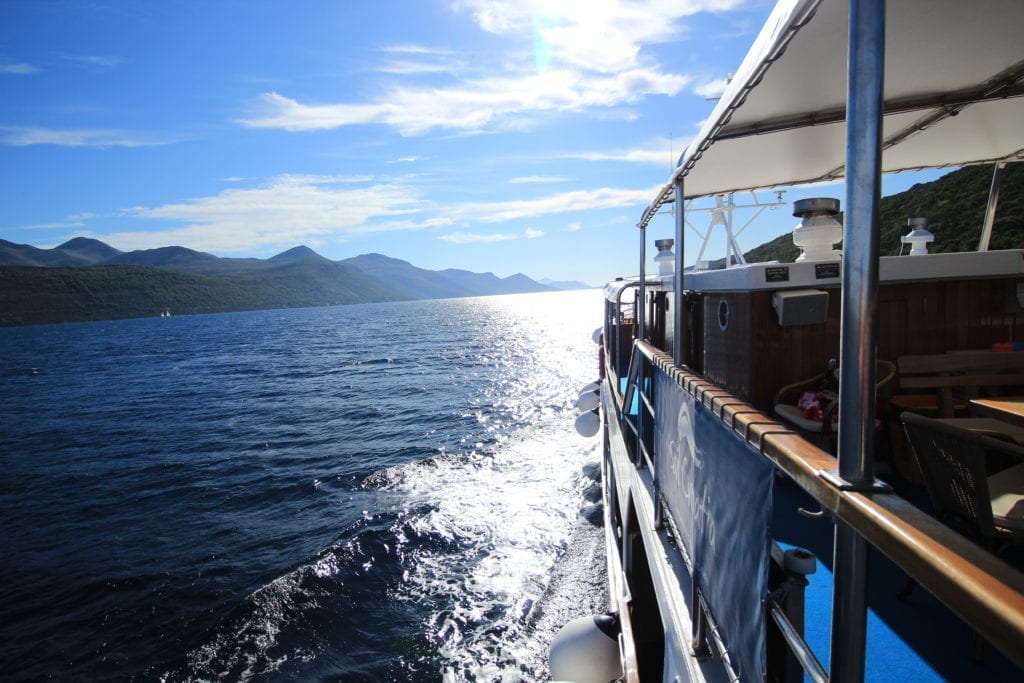
Sail Croatia is pretty self descriptive. It’s a boat company which takes you around several Croatian islands via boat. The week long boating experience allows you to experience Europe but from a different perspective, and see the beautiful country from (almost) the horizon. Sail Croatia has several boating options for people wanting a range of experiences; for young people who want to gorge themselves on alcohol and visit the mainland with a barely survivable hangover. And for those people who want to remember everything they can with an enjoyable and relaxing experience onboard a large boat.
Cheap Airlines and Other Forms of Transport
Flights
Not a lot of leg room, no personal tv screens, probably seated next to a screaming baby but at least the flight only cost the price of a day’s meals. Vueling and Lufthansa were the subpar airlines I used when I wanted to get somewhere on the cheap. Sometimes the flights were within a short distance of only about 3 hours, but if you’re travelling through different countries the layovers can be horrendous. I once took a flight from Poland to Croatia which logically would have only been a couple of hours, but chuck a 5 hour layover in the middle and I might as well have travelled to Thailand in the same amount of time. Multiple other cardboard cutout airlines travel within the continent as well so there is no shortage of disappointing flights if you need one.
Bus and Rail Travel
Bus-a-bout and Eurail are economically friendly forms of transport to get around Europe (and better for the environment than flying).
Brass Cobblestones
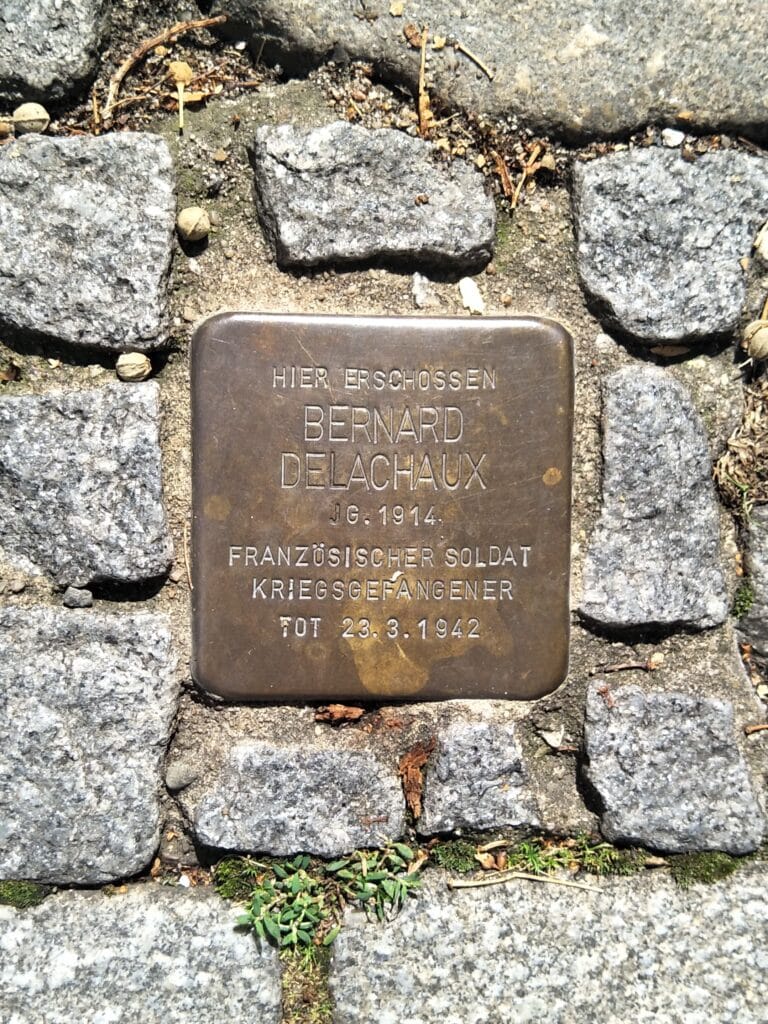
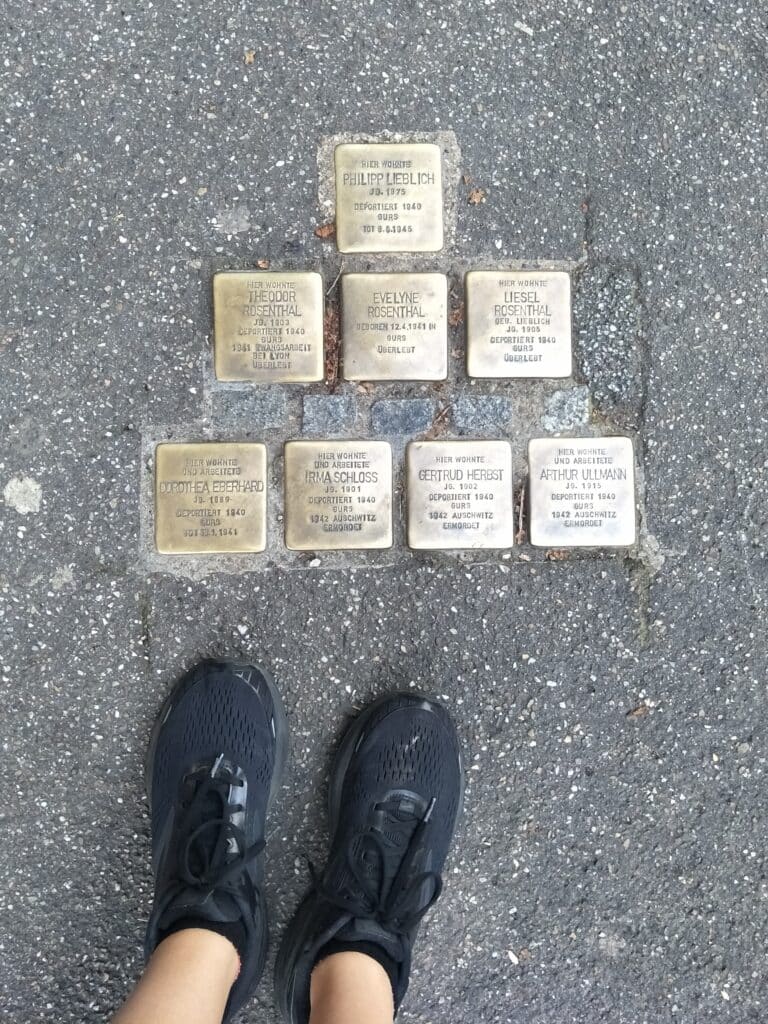
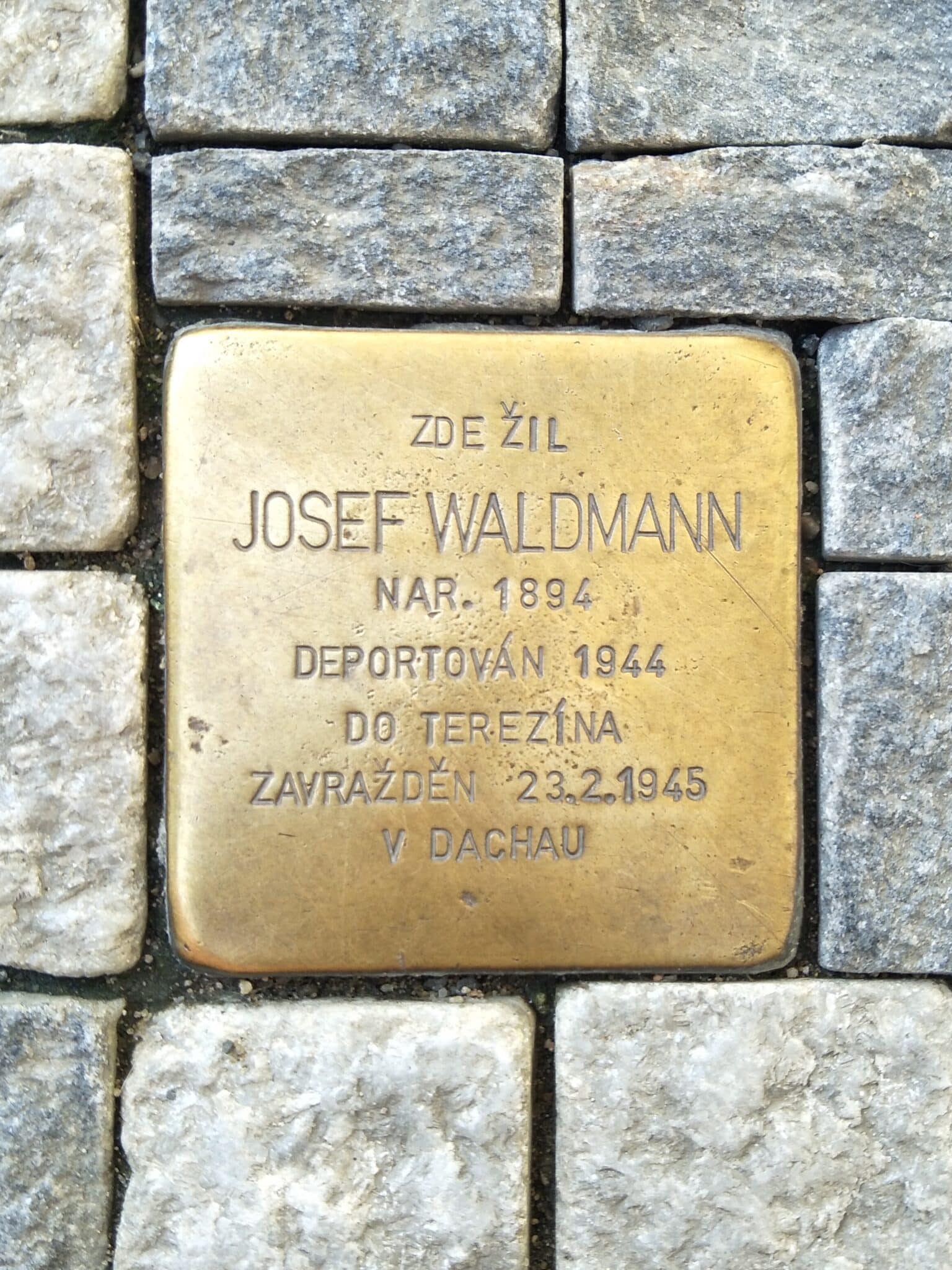
Have you ever walked around suburban Streets in Europe and noticed small brass bricks embedded in the pavement outside some houses, apartments or inner city buildings? And did you notice that these bricks have names, dates and locations on them? Some of these bricks sit alone, some of them in groups of 5 or more.
These ‘Stumbling Stones’ aka Stolpersteine can easily go unnoticed in day to day life, but what they represent is far greater and heavier than their physical 10cm cubed size. Each brick represents a person who lived or worked in the building before it, and who were persecuted under the Third Reich during WWII. These people were forcibly removed from their homes and deported and forced to live, work, survive in unimaginable conditions, or in a lot of cases quickly sentenced to death. Their names, date of births and fate are etched onto each stone, many were murdered in concentration camps, others survived forced labour or were exiled.
As at February 2019 there were 70,000 brass bricks spread across Europe, thanks to Gunter Demnigs’ initiative, he has brought more attention the horrors of the Holocaust by starting the conversation right on your doorstep.
So next time you notice these bricks, or if you’re yet to travel Europe and you see them in place of the usual cobblestone, take a moment to read the names and think about the millions of Holocaust victims.
You can read more about the Stumbling Stones here.
Data / WIFI
A few countries like Croatia sell a sim card for 10 euros with 7 days of unlimited data, perfect if you’re on a week-long tour in the country. Otherwise free WIFI is usually very accessible throughout popular tourist hotspots in Western European countries. Just remember to never enter any personal and sensitive information into bank accounts etc while on these public networks as they are easily hacked.
Even though international travel isn’t as easily available as it once was. There is nothing stopping you from preparing the OE of a lifetime once the borders open. Because I wouldn’t be surprised that once the world starts to operate like normal again, it will be like opening the floodgates and flights will be booked up for well in advance.
Bathrooms / Public Toilets
Europe is well known for their public toilets costing anywhere upwards from a coin donation to 1Euro or more. These payments are used to help pay for the cleaning and maintenance of the toilets, which can sometime be debatable when you feel you must sanitise your whole body when leaving… Always carry a few coins with you in case you have some bad chicken or a night on the rums.
Several Eastern European toilets cannot take toilet paper due to their piping systems, bins are provided next to the toilet for this purpose. Don’t be that guy and fuck up your hostels drainage system.
